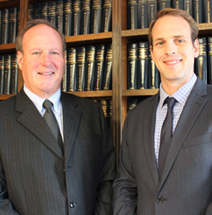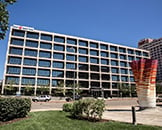Injury Due to Medical Malpractice
Health care workers, including doctors, nurses, other hospital staff members or other health care related professionals, must be held to an industry standard of care when administering treatments to patients. The industry standard has been established by what type or level of care other health care employees/professionals would provide a patient in similar or comparable conditions. If a health care employee does not meet the industry standard of care when administering, or failing to administer, treatment to a patient and the patient is injured as a result, medical malpractice may have occurred. If this is the case, the injured individual may have a legal claim for compensation for injuries suffered. It is important to note that not all injuries a patient may suffer are the result of medical negligence. Medical treatments often have risks involved and negative results may be unavoidable. To have a medical malpractice claim, the patient’s injury must be the result of the negligent action (or inaction) of a medical health care provider.
Establishing Negligence
When bringing a medical malpractice claim, the party bringing the claim must provide evidence of the defendant’s negligence to the court. The defendant is the party legally responsible for the victim’s injury. Depending on the circumstances surrounding the injury, the defendant may be an individual (such as a doctor or nurse) or a hospital. If the hospital is the defendant, the plaintiff must be able to show that the hospital was a negligent facility. Similarly, if the defendant is an individual, the plaintiff must show that he or she was negligent in treating the injured party. Whether the defendant is a facility or an individual, the burden of proof on the plaintiff is the same. To establish the defendant’s negligence, the plaintiff (injured party or loved ones bringing a claim on behalf of the injured party) must prove the four elements of negligence:
- Duty – The defendant owed a legal duty of care to the plaintiff
- Breach of Duty — The defendant breached this duty by action or failure to act (failing to treat the plaintiff in accordance with the industry standard of care)
- Injury — The victim suffered an injury.
- Causation — The plaintiff’s injury was caused by the defendant’s conduct
Generally, it is most difficult to establish causation in a medical malpractice case. When proving this element, the plaintiff must be able to show the court that he or she was injured due to the defendant’s negligence and that the injury suffered was not a natural result of the plaintiff’s medical condition. The defendant’s conduct does not have to be a direct action; it may also be proximate in nature. If the negligent conduct were direct, it would be considered actual causation. This means that the injury suffered was the result of the defendant’s action (or failure to act). An example may be if the doctor (defendant) treated the plaintiff incorrectly, or failed to treat the plaintiff’s symptoms, causing injury. If the defendant had not been negligent, the victim would not have been injured. Similarly, if the defendant’s causation was proximate, the negligent action was not direct. However, the defendant’s negligence was the legal cause of the victim’s injury. This means that the defendant created the situation (or sequence of events) that caused the plaintiff’s injury. Actual and proximate cause may be difficult to prove to the court. For this reason, it is important to consult a personal injury attorney promptly when you, or a loved one, have been injured. A knowledgeable attorney can help you determine what legal steps to take, based on the facts surrounding your injury, when the injury occurred and the applicable law in your state.
Preparing to Meet with Your Personal Injury Attorney
To read and print out a copy of the checklist, please follow the link below.
Preparing to Meet with your Personal Injury Attorney
You can download a free copy of Adobe Acrobat Reader here.
Copyright © 1994-2011 FindLaw, a Thomson Reuters business
DISCLAIMER: This site and any information contained herein are intended for informational purposes only and should not be construed as legal advice. Seek competent counsel for advice on any legal matter.







